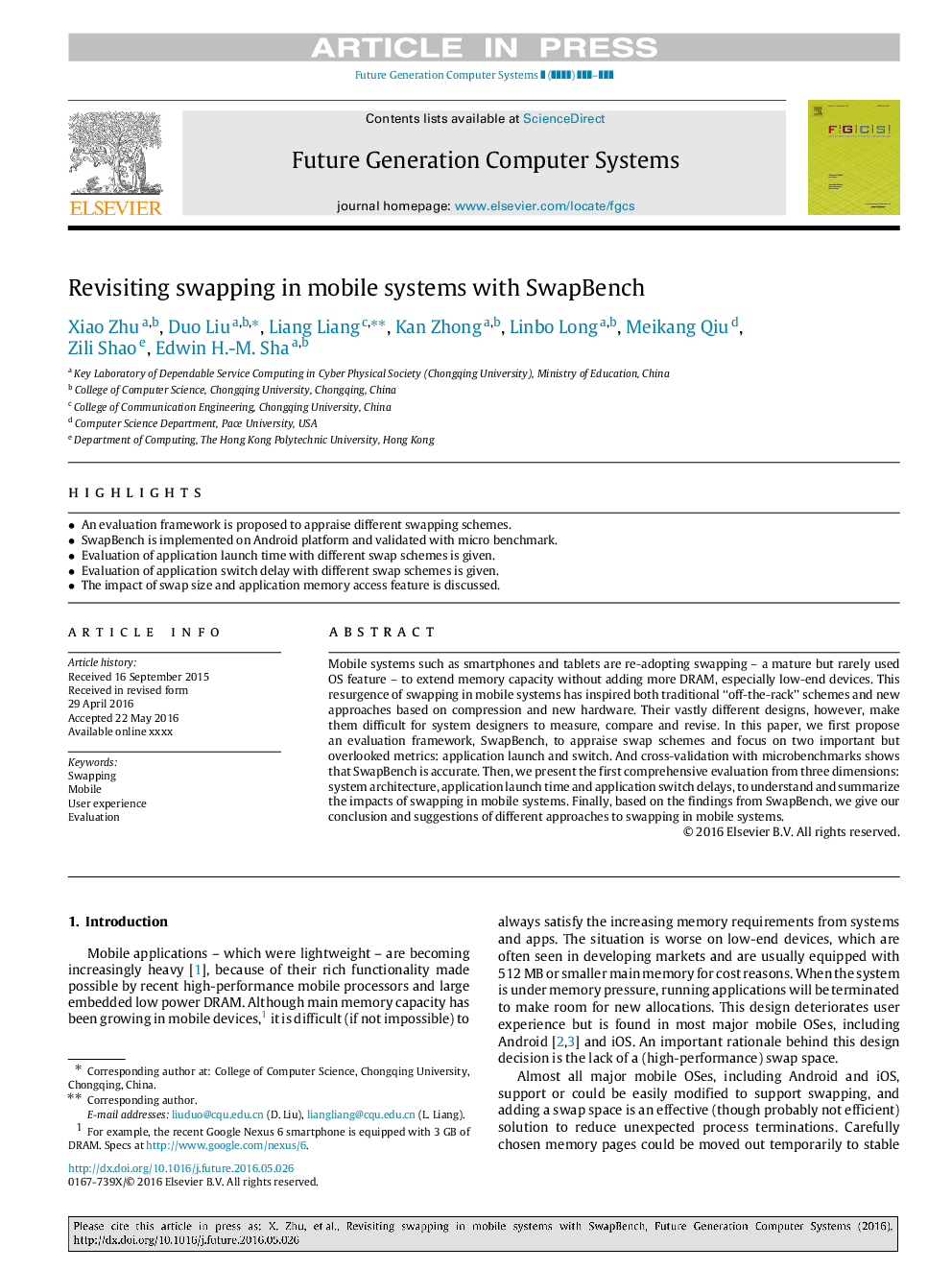| Article ID | Journal | Published Year | Pages | File Type |
|---|---|---|---|---|
| 4950378 | Future Generation Computer Systems | 2017 | 11 Pages |
Abstract
Mobile systems such as smartphones and tablets are re-adopting swapping-a mature but rarely used OS feature-to extend memory capacity without adding more DRAM, especially low-end devices. This resurgence of swapping in mobile systems has inspired both traditional “off-the-rack” schemes and new approaches based on compression and new hardware. Their vastly different designs, however, make them difficult for system designers to measure, compare and revise. In this paper, we first propose an evaluation framework, SwapBench, to appraise swap schemes and focus on two important but overlooked metrics: application launch and switch. And cross-validation with microbenchmarks shows that SwapBench is accurate. Then, we present the first comprehensive evaluation from three dimensions: system architecture, application launch time and application switch delays, to understand and summarize the impacts of swapping in mobile systems. Finally, based on the findings from SwapBench, we give our conclusion and suggestions of different approaches to swapping in mobile systems.
Related Topics
Physical Sciences and Engineering
Computer Science
Computational Theory and Mathematics
Authors
Xiao Zhu, Duo Liu, Liang Liang, Kan Zhong, Linbo Long, Meikang Qiu, Zili Shao, Edwin H.-M. Sha,
